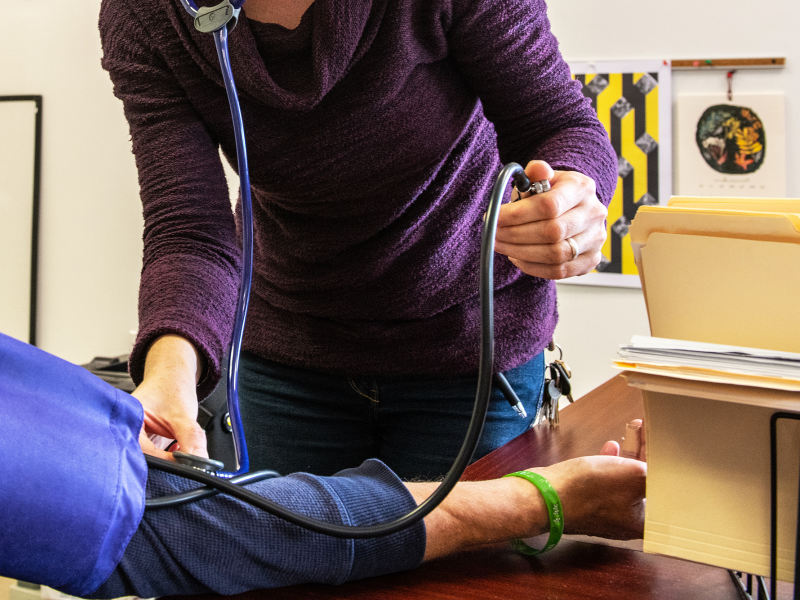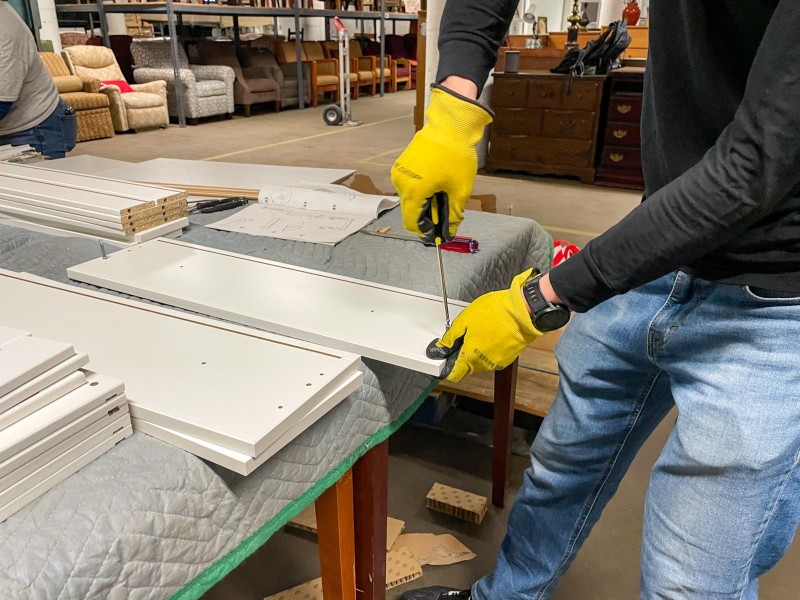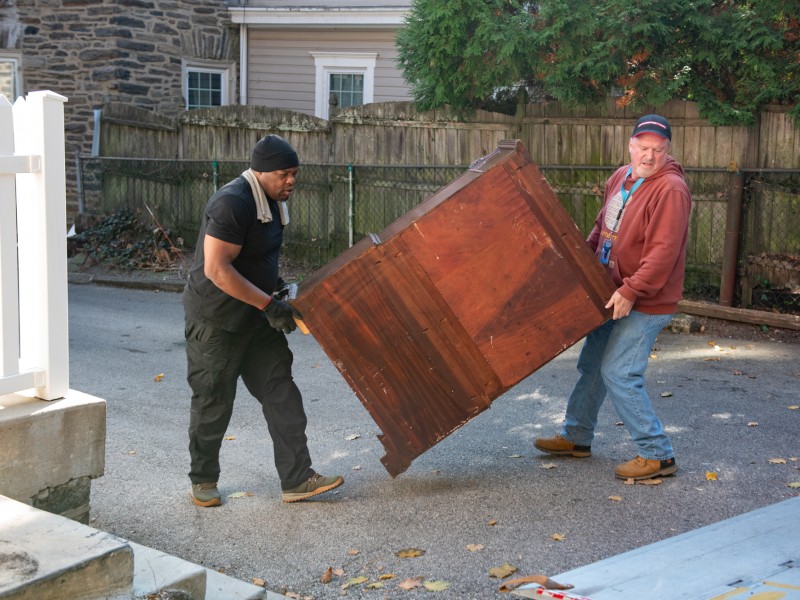Beat the Heat this Summer
As summer kicks into high gear, extreme heat can put many people at risk. Pathways to Housing PA's Medical Director shares some helpful tips on helping you and your neighbors in need beat the heat.
Persons living on the street or in shelters are at increased risk for heat related conditions. Problems can occur from dehydration, exposure and overheating. Limited access to drinkable water and restrooms can exacerbate the effects of summer heat. Malnutrition, medical illnesses and exhaustion and some medications can increase homeless persons’ vulnerability to heat.
Exposure related conditions: Persons living on the street are susceptible to hyperthermia, or an elevated body temperature. This can be caused by heat exhaustion or heat stroke. Symptoms of heat exhaustion can include nausea, vomiting, headache, muscle cramps, profuse sweating, light headedness and fainting. A bumpy, prickly or itchy rash may appear. When the body is no longer able to regulate its internal temperature the symptoms can get worse and become heat stroke. Body temperature can get very high, sometimes over 105 degrees. Heart rate can elevate. Confusion and seizures with brain damage may occur. There are very serious consequences to hyperthermia. When these symptoms are experienced it’s important to get medical help immediately. Prevention is the best strategy and some suggestions are listed here.
Suggestions:
- Drink fluids regardless of your activity level – drink more than usual
- Don’t drink fluids that contain alcohol or large amounts of sugar – people who suffer from alcohol related disorders are particularly vulnerable to heat
- Stay indoors, in an air-conditioned building if possible. Try a shopping mall or library if your home isn’t air conditioned
- Electric fans can help, but when the temperature is in the high 90’s try a cool bath or shower and try to find air conditioning
- Wear light weight loose fitting clothing
- Check on your friends and have someone do the same for you
- Check the local news for health and safety updates regularly
- Protect face and head by wearing a wide-brimmed hat and avoid too much sunshine
- Use Sunscreen
Figure: Heat Exhaustion
- Heavy sweating
- Weakness
- Cold, pale, and clammy skin
- Fast, weak pulse
- Nausea or vomiting
- Fainting
What You Should Do:
- Move to a cooler location.
- Lie down and loosen your clothing.
- Apply cool, wet cloths to as much of your body as possible.
- Sip water.
- If you have vomited and it continues, seek medical attention immediately.
Heat Stroke
- High body temperature (above 103°F)*
- Hot, red, dry or moist skin
- Rapid and strong pulse
- Possible unconsciousness
What You Should Do:
- Call 911 immediately — this is a medical emergency.
- Move the person to a cooler environment.
- Reduce the person's body temperature with cool cloths or even a bath.
- Do NOT give fluids.
Medications and heatstroke
The following is a list of medications, which can increase the risk of heatstroke due to the way they affect the body:
- Allergy medicines (antihistamines)
- Some blood pressure and heart medicines (beta-blockers and vasoconstrictors)
- Diet pills and illegal drugs such as cocaine (amphetamines)
- Laxatives
- Some medicines that treat mental health conditions (antidepressants and antipsychotics)
- Seizure medicines (anticonvulsants)
- Water pills (diuretics)
Helpful Resources:
- City of Philadelphia Heat Help Line (215-765-9040) for the elderly and those vulnerable to the high temperatures. The Help Line will be opened from noon until midnight on Thursday and from 8:30 a.m. until 6:00 p.m. on Friday.
- Philadelphia Senior Center: 215-546-5879
- Pennsylvania Health Department: 1-877-PA-HEALTH
- Stay cool interactive map Stay Cool Interactive Map
About the Author:

Howard Dichter, MD, is a psychatrist at Pathways to Housing PA and serves as the organization's Medical Director.


